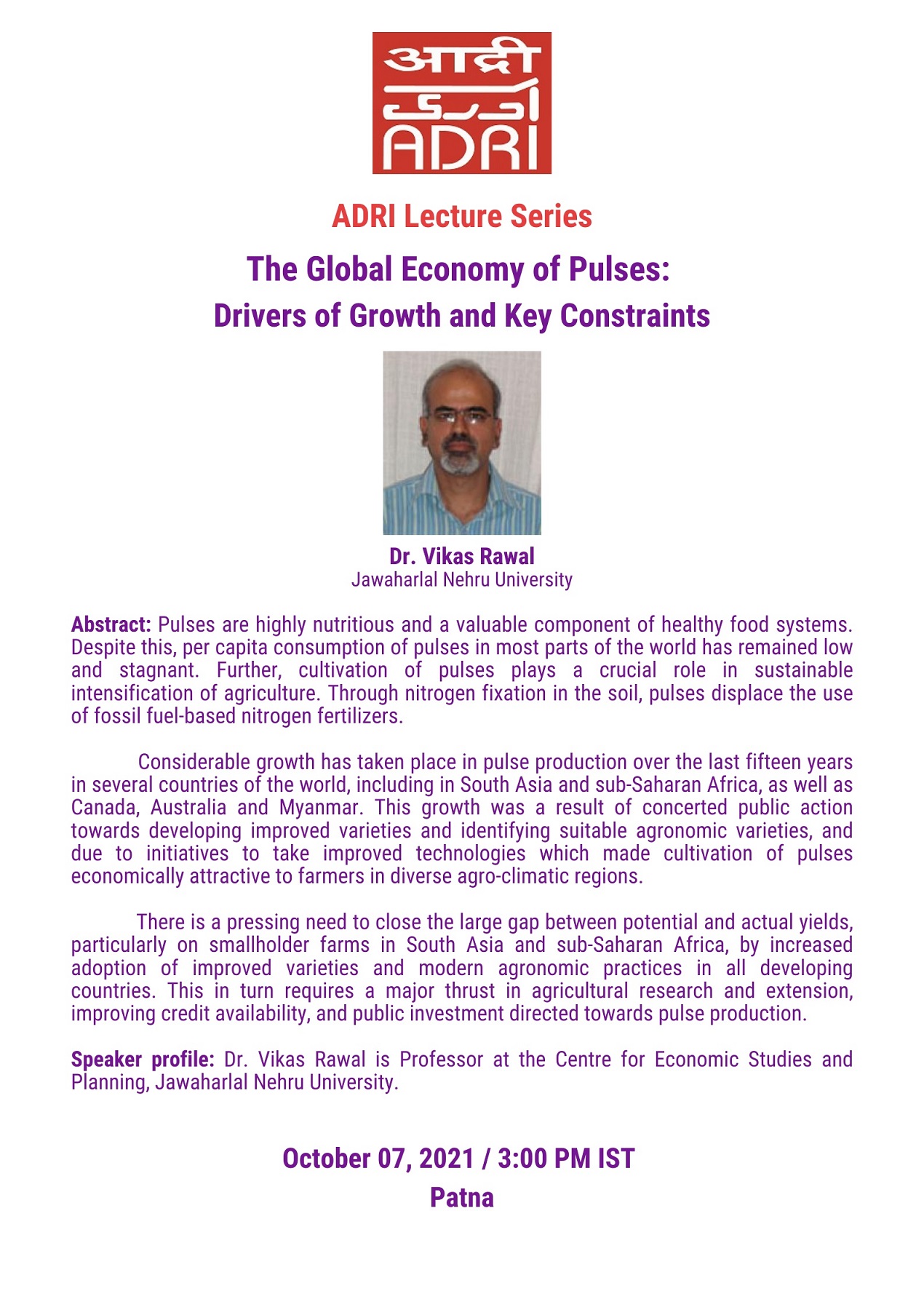Events of ADRI Patna

Speaker : Dr. Vikas Rawal, Centre for Economic Studies and Planning, Jawaharlal Nehru University
Title: The Global Economy of Pulses: Drivers of Growth and Key Constraints
Speaker: Dr. Vikas Rawal, Centre for Economic Studies and Planning, Jawaharlal Nehru University
Date and Time: 07th October 2021 at 3.00 PM (IST)
Zoom: Link
Meeting ID: 823 1776 4516
Patna, 7 October. There is a global economy of pulse production and India is central to it as it is the biggest producer and consumer. Vikas Rawal, a professor at Jawaharlal Nehru University explained the workings of the global economy of pulse production in his lecture at Asian Development Research Institute, Patna today.
Prof Rawal emphasized that there is a need for India to include pulses in public distribution system, improve procurement of pulses at MSP, better nutrition, ecologically better crops, incentive for farmers. The policy of procurement in India needs more meticulous planning. This will be extremely beneficial for Bihar which has above 40 percent of its population below poverty line.
Pulses are a great source of nutrition for the poor. They are ecologically sustainable crop as they fix nitrogen in the soil. However, they are more susceptible to climate change and pests. In his extensive research, Prof Rawal has studied pulse production in different countries of the world. He found huge inequalities between large scale and small-scale producers. He found that yields and incomes were higher in developed countries. He showed that even within India, it is more profitable to produce other crops such as wheat than pulses.
He explained that seed variety improvements were difficult and hence the private companies were not interested in pulse production. Hence, most of the technological progress in pulse production has happened in the public sector. Post 1991, there has been a huge growth in pulse production which has been the driver of growth in Asia, Africa, Australia and North and South America.
Prof Prabhat Ghosh from ADRI chaired the session and emphasized the need for the involvement of public sector in pulse production. The lecture was attended by scholars from all over the world such as Thomas A Timberg from Harvard university who lauded the study for its meticulous research.